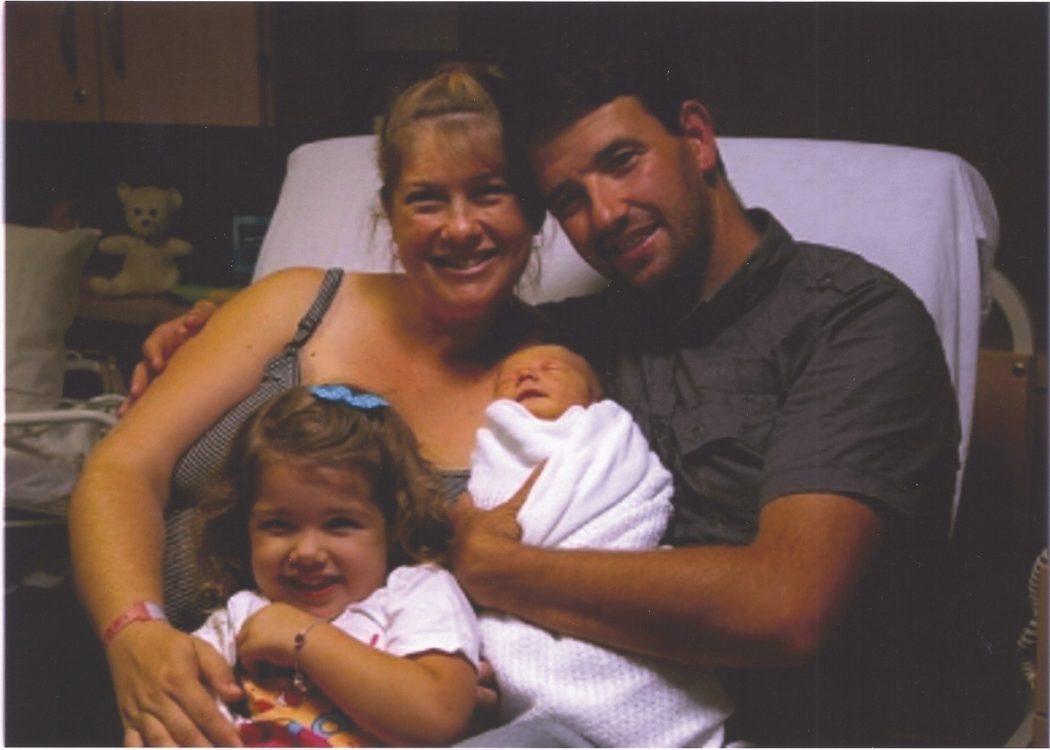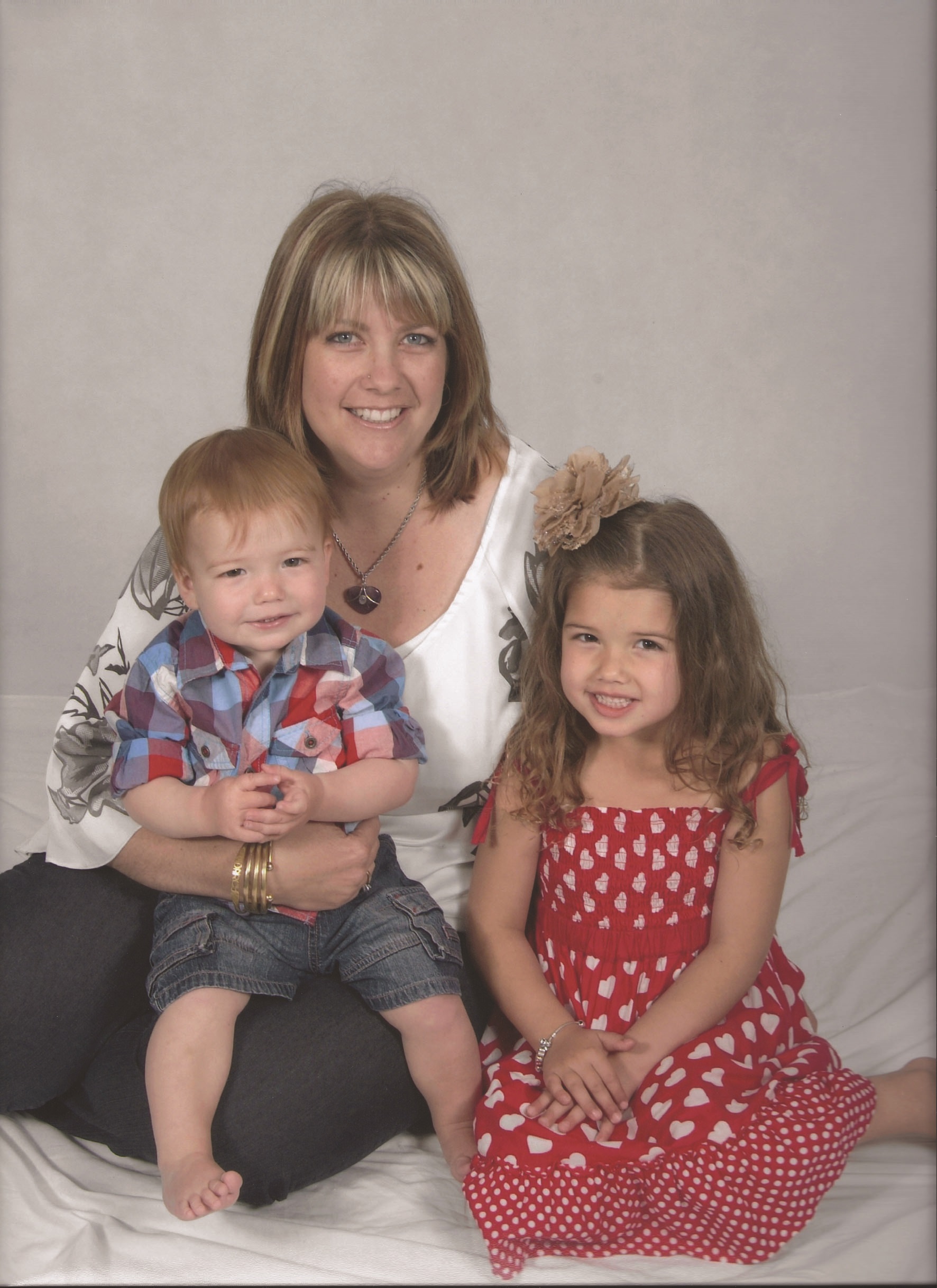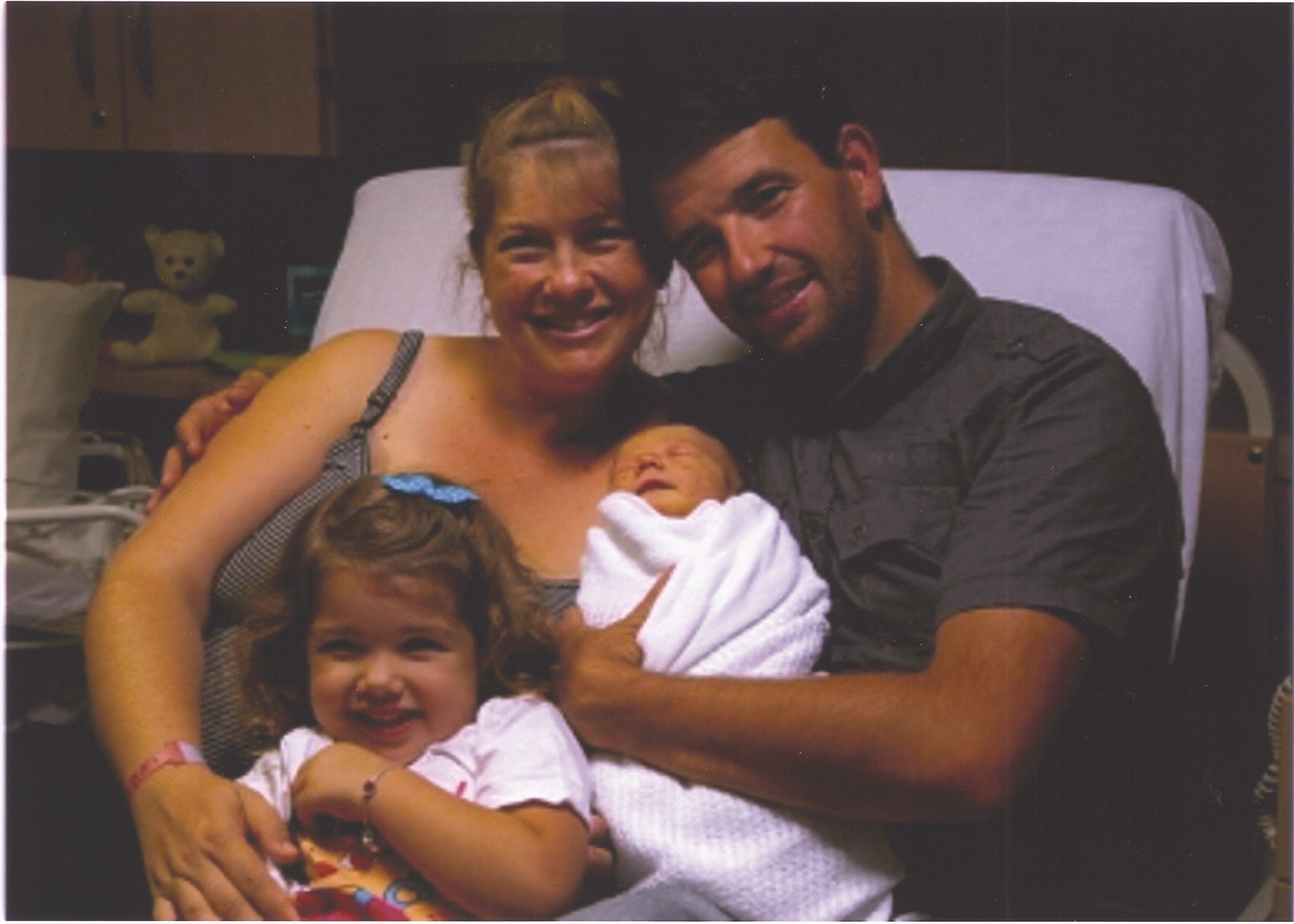This is a story about lost love, grief and the strength of one mother to keep going on after losing her husband the the father of her kids in a sudden and fatal accident.
On Saturday 25 June 2011, Graham Santich kissed his wife and two young children goodbye and left for work. He never returned home. A tragic accident on Perth’s Mitchell Freeway left a family shattered and struggling to find a new sense of normal without him.
The Santich family were in a state of bliss with their tenth wedding anniversary celebrations quickly followed by the birth of their second child Darcy, a much loved brother for three year old Charlotte. Sadly, their time together as a family of four was to be brief. Just eight weeks.
Michelle, still recovering from the caesarean delivery, vividly remembers the phone call from police telling her Graham had been in a car accident and how her world stopped in an instant.
“I have thought back many times to things that happened that day,” she recalls. “I was at the shops with the two kids when the police called and told me Graham had been in an accident and I needed to get somebody to drive me to Royal Perth Hospital as soon as I could. All I could think was that he was not going to make it and had horrific images going through my mind of what he might look like when I finally got to him.”
Her parents rallied to her aid, and soon they were met by uniformed police at the emergency department doors and led to a small conference room.
He was perfect. His eyes were closed. He looked like he was sleeping. There looked to be nothing wrong with him.
“It was then that I really knew,” she says. “I knew he was gone and the police confirmed my worst fear.”
Reliving the events, Michelle recalls seeing Graham for the first time after what seemed liked an eternity, on a hospital bed, in a hospital gown, with not a scratch on him.
“He was perfect,” she says. “His eyes were closed. He looked like he was sleeping. There looked to be nothing wrong with him.
“I am grateful he looked the way he did but it was also very confusing, because what was in front of me didn’t match the images in my head.”

The details surrounding Graham’s death quickly raised more questions than answers. Police explained their suspicions that Graham had passed out while driving. It was a relatively minor accident, with minimal damage to the car. He became a case for the Coroner. And so began the long wait for answers.
The question of organ donation was raised and consent was given to retrieve his corneas. DonateLife quickly became the liaison between Michelle and the Coroner because, despite the retrieval, a transfer could not be made to a recipient until a cause of death was found.
In the weeks after the accident, as Michelle and her family struggled to come to terms with their loss, DonateLife offered counselling and information packs which included Bunnings vouchers to purchase a tree to grow in his memory. Michelle now utilises the free counselling service, which also provides some counselling to young Charlotte, and attends support groups.
Michelle describes one of the things that plays constantly on her mind is the memories the children will have of Graham and how the organ donation services have offered them ways to make special connections to him, including adding his name to a memorial wall at Lake Monger honouring all Western Australians that have made the ultimate gift and donated their tissues and organs.
“Since Graham passed we have always told Charlotte that her daddy is magic and lives amongst the stars,” she says. “So when DonateLife adopted a star for WA Donors, it gave us a place to send our goodnight wishes. Charlotte is always so eager to see if her daddy’s star will be the first one out.”
“As time goes on I know I am going to become more my own person and less the person I was with him. I don’t want to but I can’t stop it. I hate this new sense of normal.”
“For me, putting his name on the wall and having the coordinates to a star gives us more connections to him, more than just our memories. The kids will always know their daddy was someone special and did something wonderful. It gives us places to go and prompts us to tell stories about him.”
But it is the lack of personal memories the children will have that causes Michelle angst, in particular that Darcy will never have memories of his own and eventually Charlotte’s will fade.
“While family and friends will tell stories and teach Darcy about his dad, the difference will always be that Charlotte will have three years worth of photos with him, while Darcy has very few,” she says.

“I still go over the accident in my head and ask why him, what could I have done differently, worrying he was alone and if he suffered, and my anger that no one stopped to help him.
“I hope Darcy will develop a strong connection with Graham through our family, our love and our memories. I know that Charlotte will always feel close to him, she was his little girl and they thought the world of each other.”
Michelle has tried hard to establish traditions in his memory such as taking the kids to the beach and collecting shells on Graham’s birthday, something he loved to do with Charlotte. On his anniversary there is the Crackerjack Cup lawn bowls tournament at the Fremantle Bowls Club, the place of his wake and where he spent many hours as a keen player.
Meanwhile, balloons and rainbows have become symbolic with balloons often released in his memory and rainbows bridging a connection to his unforgettable grin.
“Any chance I can get to keep remembering him, I do it. I want to feel like he is still part of our family and to include him in our lives even if though he isn’t here,” she says.
The question of organ donation was raised and consent was given to retrieve his corneas. DonateLife quickly became the liaison between Michelle and the Coroner because, despite the retrieval, a transfer could not be made to a recipient until a cause of death was found.
Listening to Michelle describe how she is learning to live with only half a heart without her soul mate, it is obvious the love and adoration this couple shared. Michelle describes Graham as loyal and loved by many.
“He was one of those people who made friends wherever he went,” she explains. “He always had time for his family and was passionate about sport and music of all genres, and he was exceptionally dedicated to his landscaping business. But above all he was thrilled to be a dad, uncle and godfather and was always full of life when he was with the kids.”
Michelle recalls how she often had to pull the reins to get him to hurry along putting Charlotte to bed after numerous songs, books and giggling, and how at birthday parties he was termed King of the Kids, usually swamped by a pile of ankle bitters vying for his attention. But for Graham, it was never a chore. He saw it as a privilege and revelled in it.
“As much as I still expect him to walk through the door each night after work and sometimes still pick up my phone to send him a text, I have settled into this new life and it is hard to accept, especially because it is starting to feel normal without him. As time goes on I know I am going to become more my own person and less the person I was with him. I don’t want to but I can’t stop it. I hate this new sense of normal,” she says with a heavy heart.

An answer to his death finally came almost five months after the accident. The Coroners Court ruled that Graham died from choking. Michelle still finds it incredibly hard to accept this simple answer.
She, like many others, suspected the Used car, which he had owned just two days, had played a part in his passing. But other than perhaps isolating him from vital assistance, three independent mechanics ruled the car played no role.
“I have had lots of appointments with police, DonateLife and even the Coroners Court to try deal with my ongoing confusion about how he died,” she says. “I still go over the accident in my head and ask why him, what could I have done differently, worrying he was alone and if he suffered, and my anger that no one stopped to help him. More recently I have struggled with the terminology used to represent his cause of death.”
As horrible as the circumstances, Michelle marvels at the love and beauty she has discovered exists in the world through the seemingly endless lengths of support and friendship offered, at times from complete strangers.
As horrible as the circumstances, Michelle marvels at the love and beauty she has discovered exists in the world through the seemingly endless lengths of support and friendship offered, at times from complete strangers. She explains there have been donations to a trust fund for the children, grocery shopping and cooked meals, Graham’s business suppliers wiping their bills, his favourite football team signing a card and the drummer of one of his favourite bands visiting and having a mini jam session with Charlotte, and everything in between.
“I know people often didn’t know what to say or do but somehow they got the balance right. And clearly the willingness to help me and the kids is a testament to the person Graham was and the influence he left on the world,” she says.
And so the saying goes, and never rings more true than here, if love could have saved you, you would have lived forever.
For more information on becoming an organ donor with DonateLife visit www.donatelife.gov.au







